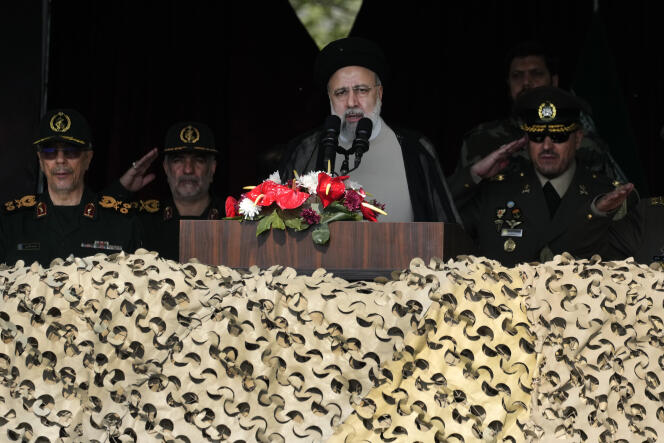


When Nadine Olivieri Lozano, the Swiss ambassador to Iran, was summoned by the local authorities in the early hours of April 14, it wasn't her diplomatic counterparts from the Ministry of Foreign Affairs she was meeting. Instead, she was directed to an office of the Revolutionary Guards, the regime's ideological army, as Mojtaba Abtahi, an adviser to the Iranian interior ministry, recounted on April 16. A few hours earlier, Teheran had launched operation "Honest Promise," firing hundreds of projectiles against Israel.
The Swiss Confederation represents the interests of the United States in Iran, as the two countries have no diplomatic relations. But on April 14, the Guards had a message for Washington: "They told [the Swiss ambassador] that if the Americans made the slightest move, the whole region would be destroyed," said Abtahi. The Islamic Republic, which a few days earlier had urged the US to steer clear of a direct confrontation between Iran and Israel, was now repeating its threats.
As recounted by the interior ministry adviser, the Swiss ambassador's nocturnal visit to the Iranian regime's hardliners could well symbolize the way in which the Revolutionary Guards have taken control of the country's affairs. This is an authority that the military operation "Honest Promise," led by the aerospace branch of the Islamic Republic's ideological army, sheds new light on.
Launched in the early hours of April 14 in retaliation for Israel's attack on its consulate in Syria on April 1 and the death of one of its generals, the Iranian attack was larger than expected. More than 300 drones, cruise missiles and ballistic missiles were fired toward Israel and intended to cause significant damage. Most of the projectiles, however, appear to have targeted air bases in the Negev desert, far from population centers, and most of them were intercepted in flight by Israel, Western forces deployed at sea or in neighboring countries, and even by Sunni Arab countries, in the case of the drones.
Far from showing restraint after the death of General Mohammad Reza Zahedi, head of the Quds Force (the elite component of the Revolutionary Guards responsible for operations abroad) in Syria and Lebanon, as the country had done in the past, Tehran took the strategic decision for the first time to attack Israel directly from its soil. Ali Vaez, an Iran specialist at the International Crisis Group think tank, said, "Iran could not afford for Israel to think that there was no limit to the decapitating of the leaders of its armed forces and Revolutionary Guards."
You have 72.59% of this article left to read. The rest is for subscribers only.
